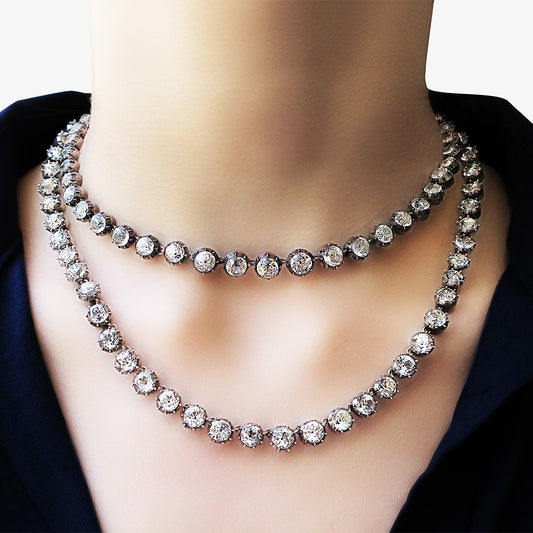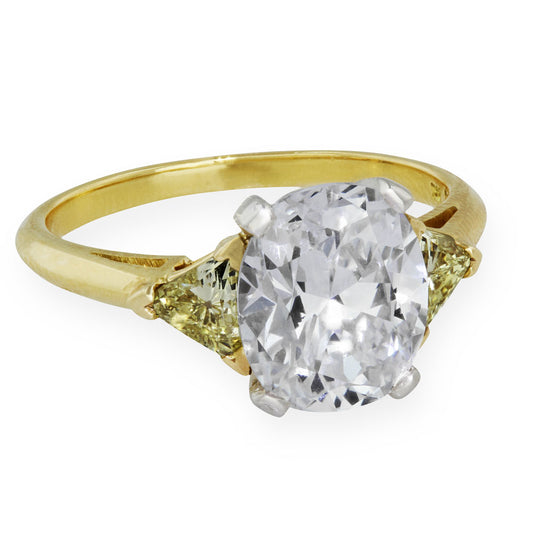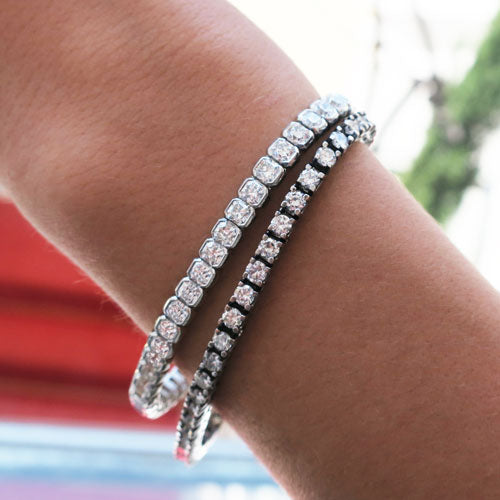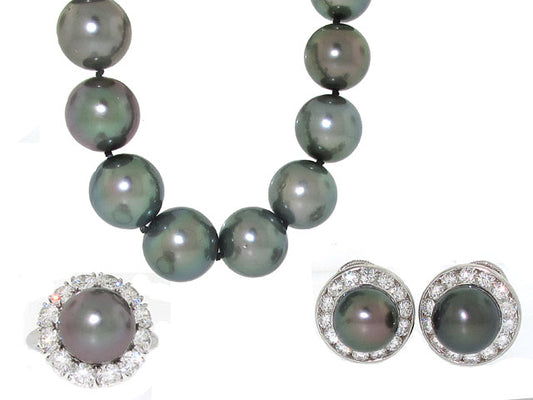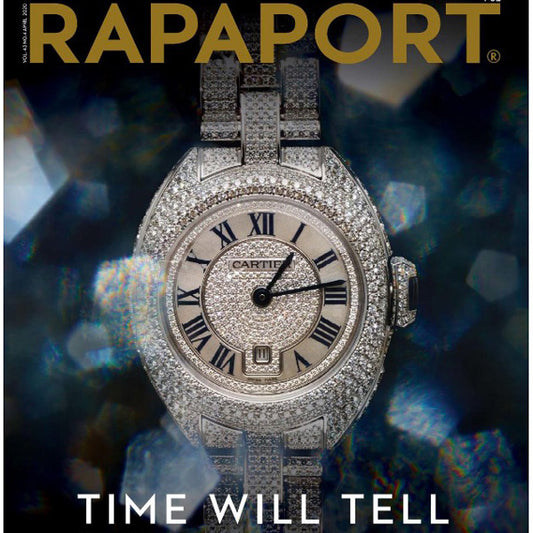The Metropolitan Museum’s annual Costume Institute Gala in New York, called “The Jewel of the New York Social Season”, gives actresses, models and designers the chance to take risks on ball gowns and baubles that are anything but bland. The theme of the 2015 Met Gala on May 4, “China: Through the Looking Glass,” offers plenty of opportunity for attendees’ imaginations to run wild. Expect to see daring and detailed attire and accessories inspired by Chinese garments, art, jewelry, porcelain and film.

Art Deco Chinoiserie Compact with Jade
A year after China became the world’s largest economy, the Gala’s theme harkens back to a time in which the Asian nation seemed much more mysterious. Long fascinated with the Far East, Western apparel and jewelry makers throughout the 20th century, especially during the Art Deco period in the 1920s and 1930s, turned to Chinese cultural touchstones to add a touch of fantasy, exoticism and whimsy for buyers and collectors who seldom ventured beyond the borders of their native countries.
In jewelry, common Chinese motifs include tigers, dragons, and Foo Dogs or guardian lions. Carrera y Carrera and David Webb, for example, created brilliantly carved tigers out of gold, often set with gems in their mouth and eyes.
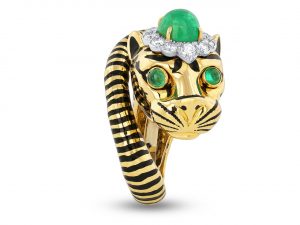
From the Beladora Archives: David Webb Tiger Ring with Emeralds and Diamonds
For the Chinese, color has specific meaning and often corresponds to elements. Black represents water, while red, a hue strongly linked to China, symbolizes fire. Earrings and a necklace from Cartier’s Le Baiser du Dragon collection weave in onyx and ruby beads amid diamonds as nods to the importance of these colors in Chinese tradition.

Cartier Baiser du Dragon Earrings
Green is the color most associated with Chinese jewelry. Imperial jade, a term that traces its roots to the Qianlong Emperor, the Chinese ruler from 1735 to 1796 thought to have accumulated the most jade in history, is intensely green and incorporated extensively in jewelry. Jade comes in two types: nephrite and jadeite. Nephrite is typically darker material, less expensive and commonly used for carved objects of virtu. Imperial jade is vivid green jadeite, but jadeite is also found in a range of colors from across the spectrum from green to brown, gray, pink and red as well as the highly-prized shades of lavender and white. Jadeite’s value is judged by color — vivid green and white typically surpass the rest — and by its translucence, purity, cut, and weight.

From the Beladora Archives: A Natural Color Jadeite Ring
The Chinese passion for jade is exemplified by the ancient proverb, “Gold is valuable, jade is priceless.” Americans and Europeans embraced the stone due in large part to its bold color, but also due to its durability, a quality that makes it ideal for rings and the elaborate carving that often ornaments jade pieces. Carving jade is a Chinese tradition and skill that is taught and handed down from generation to generation.

Art Deco Carved Jadeite and Diamond Brooch
At the Met Gala, the highlight of the annual New York fashion calendar, attendees will undoubtedly pair exquisite bracelets, brooches, rings, earrings and necklaces exemplifying the China-oriented theme with equally stunning dresses. Certainly Chinese-influenced jewelry designs, steeped in culture and created by renowned designers, have earned their place on the red carpet.


